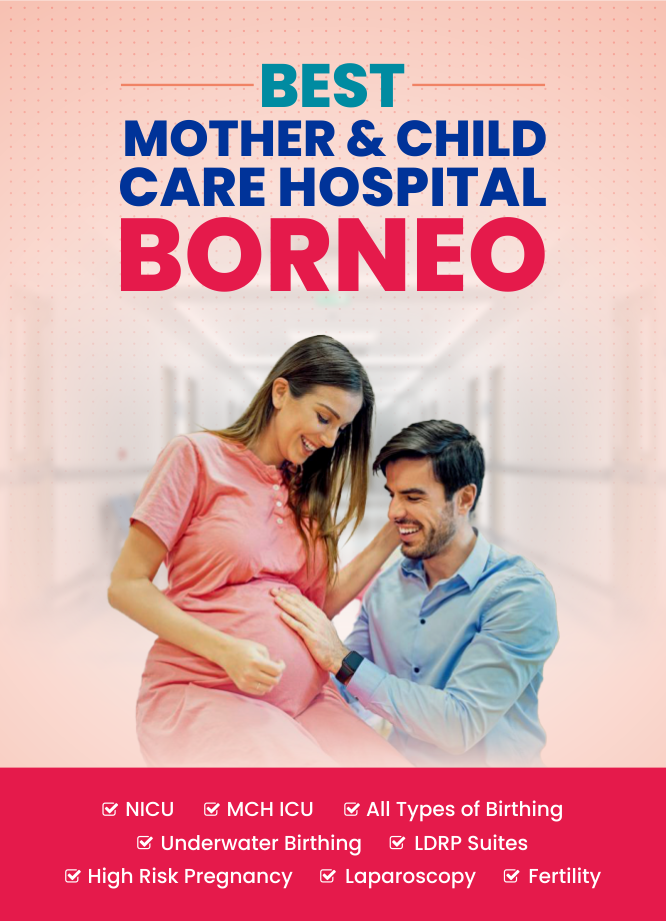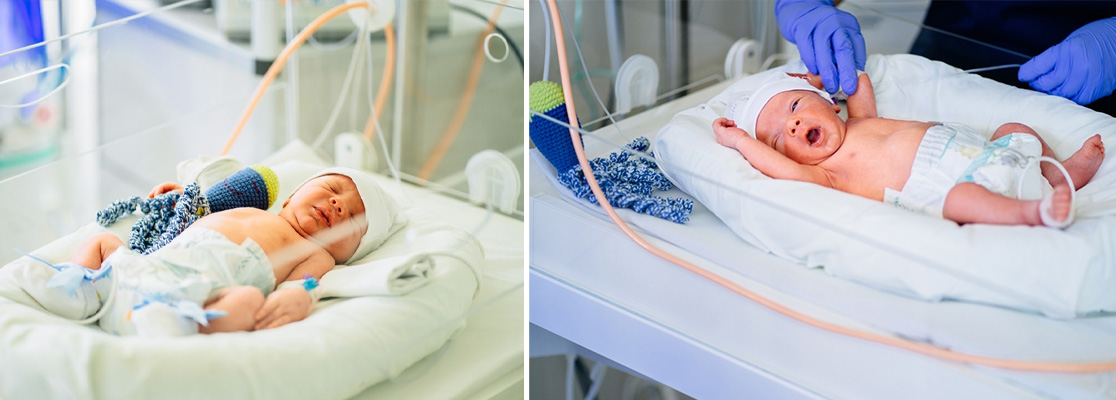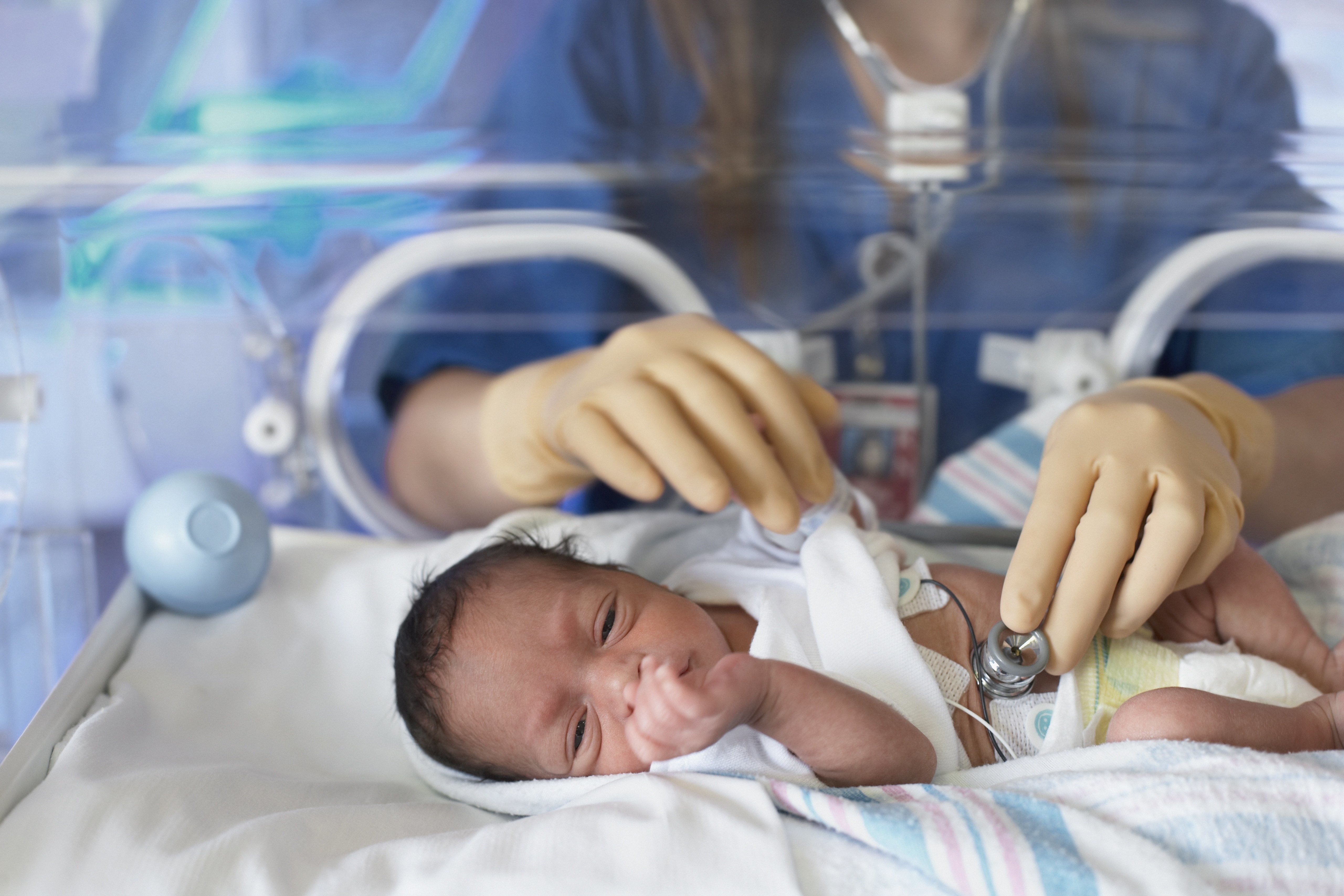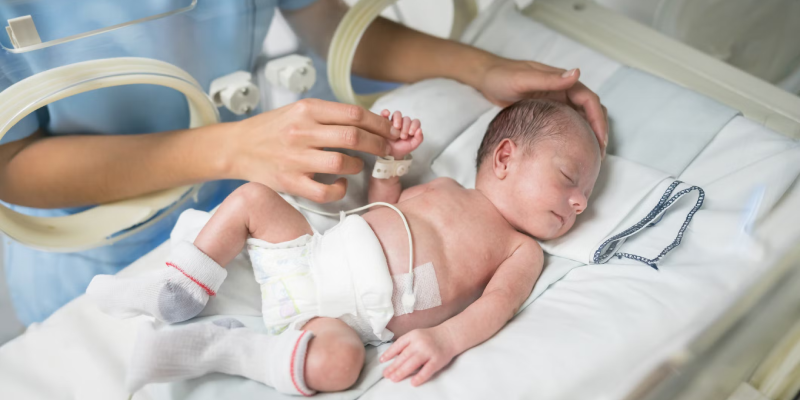

Undertaking the journey of pregnancy is a joyous and transformative experience. However, for some women, this path can be filled with additional risks and concerns. Welcome to the world of high-risk pregnancy, where the well-being of the expectant mother, the unborn baby, or both, requires extra attention and specialized care.
High-risk pregnancies can arise due to various factors, such as pre-existing health conditions or age-related considerations. Women over the age of 35 or under the age of 17 during pregnancy may face higher risks. In such cases, it becomes crucial to closely monitor these pregnancies to mitigate the chances of complications and ensure the best possible outcomes.
At our dedicated center, Nimai's Borneo Mother and Child Hospitals, for high-risk pregnancies, we understand the unique needs and challenges you may encounter. Our experienced medical team provides comprehensive care and support, prioritizing your and your baby's safety and well-being. We strive to minimize risks and maximize positive outcomes with vigilant monitoring and personalized attention.
From the moment you step through our doors, you can trust that you are in capable hands. We work closely with you, offering guidance, education, and regular check-ups to address any potential issues promptly. Our goal is to alleviate your concerns, empowering you with knowledge and resources to make informed decisions about your care.
Remember, you are not alone on this journey. Our compassionate team is here to provide emotional support, answering your questions and ensuring you feel supported every step of the way. Together, we will navigate the complexities of high-risk pregnancy, embracing hope and working towards a healthy and happy future for both you and your precious little one.
Let's delve into the factors that can contribute to a high-risk pregnancy and discover how our expert team of pediatric and neonatologist doctors is here to provide exceptional care-
1. Pre-existing health conditions : Certain medical conditions that a woman may have before becoming pregnant can pose additional risks during pregnancy. It's essential to be aware of these conditions and take appropriate measures to ensure a safe and healthy pregnancy.
2. Lifestyle :The lifestyle factors also play a significant role in determining the level of risk in a pregnancy. Habits such as smoking, drug addiction, alcohol abuse, and exposure to harmful toxins can all contribute to complications and jeopardize the well-being of both mother and baby.
3. Age : It can be a determining factor in the level of risk during pregnancy. Women who are over the age of 35 or under the age of 17 when pregnant may face increased challenges and potential complications.
Visit our center of expertise, Nimai's Borneo Mother and Child Hospitals, if you experience any of the following symptoms during pregnancy. No matter your pregnancy is considered high-risk or not:
Pregnancy-related health conditions that can pose risks to the pregnant person and unborn baby include:
Talk to your doctor right away if you experience any of the following symptoms during pregnancy, whether or not your pregnancy is considered high-risk:
Woman who get pregnant for the first time after age 35 have high-risk pregnancies. Research suggests they’re more likely to have complications than younger people. These may include early pregnancy loss and pregnancy-related health conditions such as gestational diabetes.
Young people under 17 also have high-risk pregnancies because they may be:
A high-risk pregnancy can be life-threatening for the pregnant person or unborn baby. Serious complications can include:
Management for a high-risk pregnancy will depend on your specific risk factors. Your care plan may include:
You can reduce your risk of pregnancy complications by:
Many people who have high-risk pregnancies don’t experience any problems and deliver healthy babies. But they may be at a higher risk for health problems in the future, including:
Some high-risk pregnancies can increase a child’s risk of:


